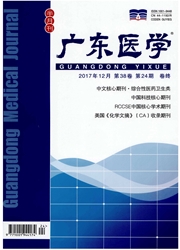

 中文摘要:
中文摘要:
许多研究表明炎症在阿尔茨海默病(AD)发病中起重要作用。慢性炎症不仅参与β-淀粉样蛋白产生和沉积、老年斑形成,而且是导致tau高度磷酸化、神经原纤维缠结病变、神经元变性及乙酰胆碱含量减少的主要因素。炎症具有双刃剑作用:炎症破坏突触可塑性是AD认知功能损害的直接推动者;炎症又可去除组织细胞碎片、有害蛋白质和受损神经元释放的毒性物质,甚至通过分泌神经营养因子等以促进神经元的修复。非甾体抗炎药物临床药物试验失败进一步揭示了炎症在AD中具有抑制和促进神经损伤的双重作用。因此,炎症在AD中具体作用机制和利弊有待进一步研究。
 英文摘要:
英文摘要:
Many studies demonstrate the important role of inflammation in the pathogenesis of Alzheimer's disease(AD). Chronic inflammation is not only involved in the production and deposition of beta-amyloid and formation of senile plaques, but also contributes mainly to abnormal hyperphosphorylated tau, neurofibrillary tangles, neuronal degeneration and decreased amount of acetylcholine. It is well known that inflammation has a double-edged sword effect. The cognitive impairment of AD originates from the destruction of synaptic plasticity caused by inflammation. On the other hand, inflammation can also remove the tissue debris, harmful proteins and toxic substances derived from damaged neurons, and even promotes neuronal repair by secreting neurotrophic factors. Clinical trial failures of non-steroidal anti-inflammatory drugs further reveal the dual roles of inflammation in AD, e.g., suppression and promotion of neurological damage. Therefore, the specific mechanisms and pros and cons of inflammation in AD remain to be further studied.
 同期刊论文项目
同期刊论文项目
 同项目期刊论文
同项目期刊论文
 期刊信息
期刊信息
